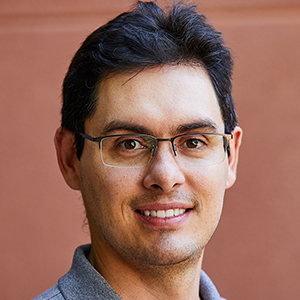
Mateus H. Gouveia, Ph.D.
Research Fellow
Center For Research On Genomics and Global Health
Education
Ph.D. Universidade Federal de Minas Gerais
M.Sc. Universidade Federal de Minas Gerais
Last updated: April 18, 2024
Scan to visit

Center For Research On Genomics and Global Health
Ph.D. Universidade Federal de Minas Gerais
M.Sc. Universidade Federal de Minas Gerais
Dr. Gouveia received his M.Sc. and Ph.D. in Genomics and Bioinformatics from the Federal University of Minas Gerais, one of the top universities in Brazil. During his Ph.D., he was awarded a competitive international scholarship that allowed him to conduct part of his research at the National Cancer Institute (NCI). Subsequently, he completed postdoctoral training in genetic epidemiology at the Brazilian Health Institute (Fiocruz-Brazil) and in genomics and statistical genetics at the National Human Genome Research Institute (NHGRI). Currently, he is a Research Fellow in Dr. Rotimi’s Center for Research on Genomics and Global Health (CRGGH) at the NHGRI.
Throughout his career, he has conducted research at the intersection of population genetics, epidemiology, genomics, bioinformatics, and health disparities. He has held leadership roles in large multidisciplinary longitudinal studies, including the EPIGEN-Brazil, ELSI-Brazil, and EMBLEM projects. His work has resulted in multiple lead-author publications in high-profile journals.
To facilitate his transition to an independent researcher, he applied for and was awarded a K99/R00 grant. This grant, entitled “Unraveling subcontinental ancestries across Africa, the Americas, and Europe, and implications for admixture/association mapping of complex traits,” was funded by NHGRI in 2022. Additionally, he applied for and was awarded an NIH Intramural Sequencing Center (NISC) Flagship Project to sequence 96 human genomes from the Amazonian region of Brazil as part of his collaboration with ELSI-Brazil. During the K99 phase of his grant, he demonstrated that failing to account for subcontinental admixture in European-ancestry populations can lead to spurious associations in genetic epidemiology studies (Gouveia et al., Nat Commun 2023). Due to the potential impact on association studies, this publication has been featured in more than 20 press releases in the US, including one from the National Institutes of Health."
Last updated: April 18, 2024
